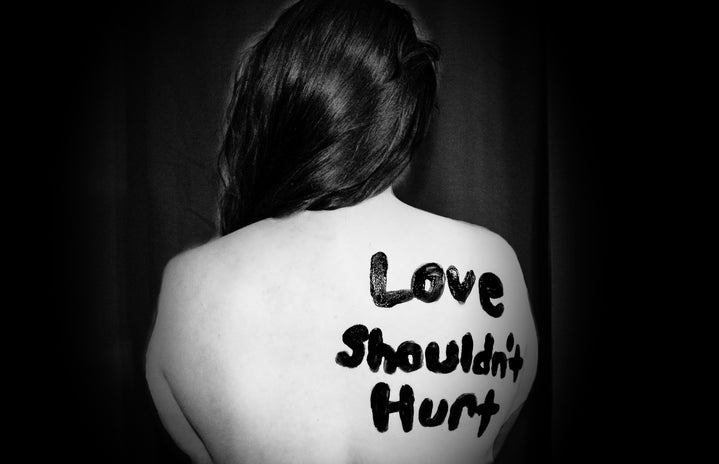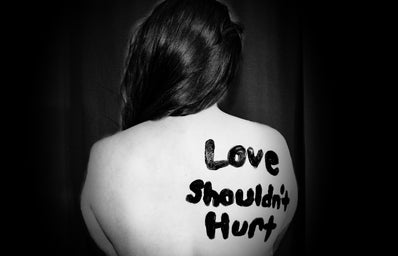(TW: Mentions of rape and sexual assault)
When I was 19 I was sexually harassed by someone I’ve known since I was a pre-teen. It involved calling me multiple times at night, messaging me on a thread where messages disappeared, yelling at me when I didn’t agree with something he said and even sexual advances (asking for nude pictures, offering nude pictures, etc). That is something I never thought I would say, because you never really think it can happen to you until it does. Tarana Burke is the founder of the vital and growing movement, “MeToo.” MeToo is a social movement against sexual abuse and assault, where people publicize allegations of sex crimes. This refers to attempting a sexual act, unwanted sexual advances or comments, or acts against a person’s sexuality using coercion. Human history has progressed immensely for women since the start of America. Laws now proclaim the prohibition of racial, religious and sexual discrimination. This being said, women are still experiencing glass ceilings, one of the most popular being sexual violence. The “MeToo Movement,” helps give women the courage to share their stories about abuse in the 21st century, making it easier than it has been in the past, whether it’s in a workplace, during a woman’s childhood and friend groups, and other relationships like significant others.
This movement has given more women the courage to report and talk about sexual abuse and assault in the workplace. In multiple U.S. studies, 1 out of 18 women experience sexual assault in the workplace (Reuters Health). This means that almost 7 million women have reported sexual assault and verbal harassment by supervisors, coworkers and others in a work environment, not to mention the people who have not reported it. The EEOC (Equal Employment Opportunity Commission) states that “It is unlawful to harass a person (an applicant or employee) because of that person’s sex.” The MeToo Movement has made a modification in social attitude and calls for an extensive change and accountability for this kind of behavior.
Similarly to the workplace, there’s also sexual abuse in friend groups from early stages in life, and the movement has helped with this as well. The moments following a sexual assault are emotionally, physically and mentally frightening. Of these victims, 30% that reported their assault have stated that the rapist was a friend or acquaintance (Flatley ONS). According to the Centers for Disease Control and Prevention, 42.2% of all women who are sexually assaulted in the U.S. experienced their first assault before they reached 18 years old (AA Pediatrics). Childhood sexual abuse can lead to harmful coping mechanisms, such as an emotional reaction like feeling guilty as if they did something to deserve the abuse, a psychological reaction like nightmares or flashbacks, re-experiencing the assault or a physical reaction like dissociation, meaning one feels disconnected from themselves and the world around them. This means over 120 million girls have been forced to conduct sexual acts at some point in their lives, mostly between ages 15-19.
I talked with a woman (she’d like to remain anonymous) who is in her second year of college and has experienced sexual violence amongst what she thought was her friend group.
This happened her freshman year, and as an incoming college student, sometimes we will do anything to make friends. She explained that her roommate at the time kept trying to force a sleepover with her and one of their acquaintances (a male friend). “After saying no, over and over again I caved when she [the roommate] said I’ll be sleeping over too.” Once she told me this, I knew something didn’t sound right, so I asked, “What happened?” The young woman goes into grave detail about what had happened to her that night. Once she got to the male’s house, her roommate left immediately, leaving her alone and no way to get back to the dorms. So, she decided to just put up with it. (TW) The guy ended up forcing her to kiss him and pushing himself onto her, while she was asleep. She was 18. The MeToo Movement started for women, and is now expanding to young girls.
In addition to sexual abuse in the workplace and during a woman’s childhood, it also can happen with their significant others and within the relationship. Signs to look for that you or someone else is being sexually abused in your relationship are patterns of behaviors used to manipulate, control or to influence an intimate partner sexually to have power over that person. The most common sexual assault in a marriage is “marital or spousal rape,” which is the act of intercourse with one’s spouse without the other spouse’s consent. Abusers are fueled by greed and selfishness. A study from Real Rape, Real Pain states that anytime a man commits sexual abuse to a partner or stranger it’s because of power, anger and retaliation. Meaning that the significant other in the relationship has no self-control and only loves themselves (also known as a narcissist).
I also interviewed one more woman (who would like to remain anonymous). This is what she had to say.
Me: “Can you give me a summary of what happened and how you decided to overcome it?”
Woman: “Yes. I was in a high school relationship and he would become a little abusive when he drank alcohol sometimes. One time I was using the bathroom and he came in, slapped me, then peed on me, and then that same night we were having consensual sex, but when I told him to stop–that I didn’t want it anymore, he forcibly handcuffed both of my wrists to the two opposite sides of the bed and proceeded to rape me while I was screaming “stop” the whole time. I think it’s important to realize that even if it is your partner, it still counts as rape. The situation brought me a lot of anxiety and throughout the years it is something that happened, but I learned that not every man will do that to me. What’s helped me the most is reminding myself that it wasn’t my fault and talking about it with people close to me who can walk me through my feelings.”
I think it is important to emphasize two main points within that story. Yes, it can still be rape even if it is with your partner or spouse and to know it is NOT YOUR FAULT. We tend to think if there is something we could have done differently, it would have never happened, but that is not true. A zebra can’t change its stripes.
The “MeToo Movement,” helps give not only women, but also men the courage to share their stories about abuse in the 21st century, making it easier than it has been in the past, whether it’s in a workplace, has happened in their childhood by their friends, or in other relationships like significant others or family members. Even though the MeToo Movement has helped so many women and made sure they are not feeling alone, it has affected the reputation of men and what is defined as sexual abuse. For example, a man’s reputation could be at stake for making a simple and innocent hand gesture, which someone could misinterpret as sexual abuse or assault. There’s also people that believe men can’t be sexually assaulted because of the stigma that “men are always the suspect in sexual assaults.” This is misandry at its finest. Being a feminist and sticking up for women’s rights and fighting for women’s stories does not mean you forget about men in the process. In fact, 1 in 4 men experience some sort of sexual violence at a point in their life (Sexual Assault Statistics | National Sexual Violence Resource Center (NSVRC)). Despite some negative backlash of the movement, it has done more good than bad, making a safe haven for people experiencing these problems and knowing they’re not alone, (also giving HR a BIG pay raise). No matter how many women or men experience sexual violence, there is always going to be someone blaming women for being sexually assaulted. If we continuously tell our stories and use the movement, more and more people could see and understand that this is not women’s fault, we do not ask to be sexually assaulted (literally who does?). People should not expect that we’re trying to give something away by how we dress or because we’re in a relationship. Using the solid evidence provided above with sexual assault being found in the workplace, in relationships, and even family and childhood friends, this movement will be the future.


